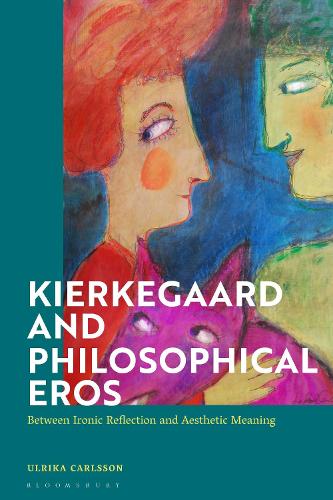
Kierkegaard and Philosophical Eros: Between Ironic Reflection and Aesthetic Meaning
(Paperback)
Available Formats
Publishing Details
Kierkegaard and Philosophical Eros: Between Ironic Reflection and Aesthetic Meaning
By (Author) Ulrika Carlsson
Bloomsbury Publishing PLC
Bloomsbury Academic
28th July 2022
United Kingdom
Classifications
Tertiary Education
Non Fiction
198.9
Physical Properties
Paperback
192
Width 156mm, Height 234mm
Description
In a bold new argument, Ulrika Carlsson grasps hold of the figure of Eros that haunts Sren Kierkegaards The Concept of Irony, and for the first time, uses it as key to interpret that text and his second book, Either/Or. According to Carlsson, Kierkegaard adopts Platos idea of Eros as the fundamental force that drives humans in all their pursuits. For him, every existential stanceevery way of living and relating to the outside worldis at heart a way of loving. By intensely examining Kierkegaards erotic language, she also challenges the theory that the philosophers first two books have little common ground and reveals that they are in fact intimately connected by the central and explicit topic of love. In this text suitable for both students and the Kierkegaard specialist, Carlsson claims that despite long-held beliefs about the disparity of his early work, his first two books both relate to love and Part I of Either/Or should be treated as the sequel to The Concept of Irony.
Reviews
Based on a careful and comprehensive reading of Sren Kierkegaards The Concept of Irony, Ulrika Carlsson debunks the schematism of the so-called theory of the stages and clears the ground for an eye-opening reassessment of aesthetic life according to Kierkegaard. * Isak Winkel Holm, Professor of Comparative Literature, University of Copenhagen, Denmark *
Equally at home in Kierkegaards Danish texts and in the ancient Greek philosophical sources that were his primary inspiration, Ulrika Carlsson provides an insightful reading of Kierkegaards early works that is both iconoclastic and compelling. Her book sheds light not only on this existential thinker, but also on love. * Rick Anthony Furtak, Associate Professor of Philosophy, Colorado College, USA *
Author Bio
Ulrika Carlsson is Assistant Professor in the School of Philosophy at the National Research University Higher School of Economics in Moscow, Russia.
